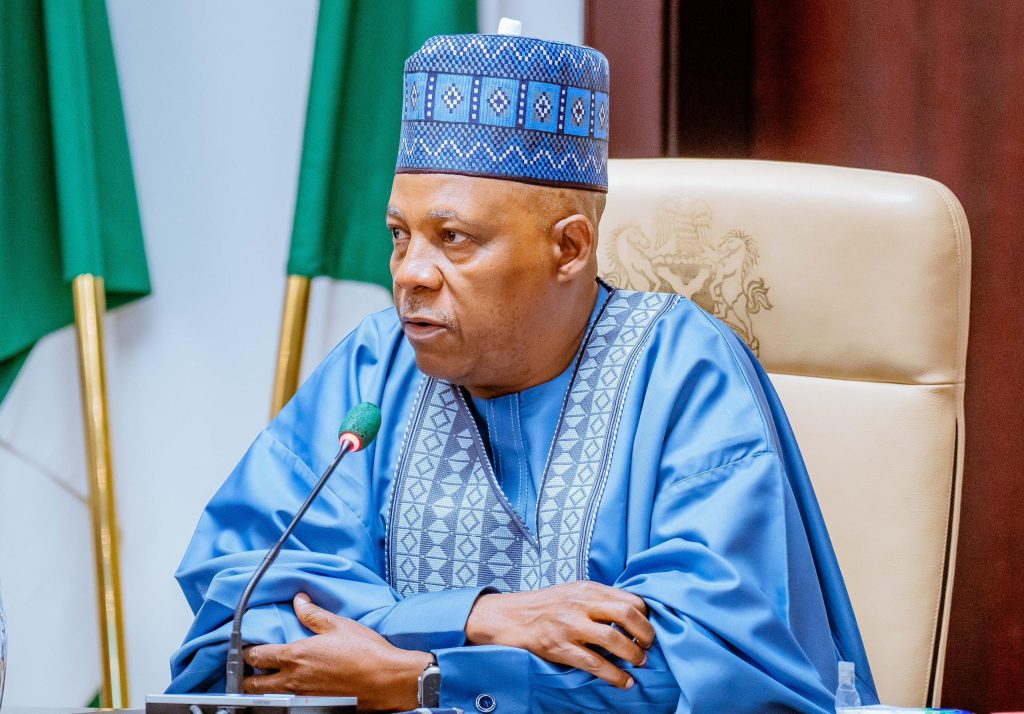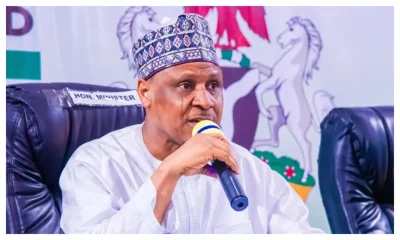NEWS
Federal Government Pushes for Local Production of Health Commodities Through EU Partnership

The Nigerian government has finalized major initiatives aimed at ensuring that essential health, immunization, and nutrition commodities are manufactured locally within the country, according to an announcement by Vice President Kashim Shettima. This decisive move is intended to bolster national health security and foster self-sufficiency in the medical sector.
Dependable NG reports that the Vice President, speaking on Thursday in Abuja, also confirmed the government’s endorsement of efforts to strengthen the reproductive health and rights of Nigerians and advance local medical industries to meet international standards. Shettima noted that this bold push to stimulate investment and strengthen local manufacturing across the entire pharmaceutical ecosystem forms a key component of President Bola Tinubu’s Presidential Initiative for Unlocking the Healthcare Value Chain (PVAC).
Represented by the Senior Special Assistant on Public Health, Office of the Vice President, Dr. Uju Rochas, Shettima addressed the Nigeria-EU Health Investment Forum. He firmly reaffirmed the federal government’s resolute commitment to constructing a sustainable, inclusive, and innovation-driven health economy. Explaining the significance of the Executive Order issued by President Tinubu on the local production of pharmaceuticals, the Vice President highlighted that through the PVAC and complementary frameworks, the administration has taken concrete steps to strengthen health governance, promote local manufacturing, and stimulate crucial investment.
The forum served as the venue for the federal government, in partnership with the European Union (EU) and ECOWAS, to sign three landmark agreements. These strategic agreements include Enabling Local Manufacturing of Health, Immunisation and Nutrition Commodities in Nigeria (ELM-N), Quality Uplift for Advancing Local Industry in Medicine Standards (Qualimeds Nigeria), and Strengthening Reproductive Health and Rights (SRHR) in West Africa. The Vice President stressed that these agreements, part of the EU Global Gateway initiative, will support a new generation of local producers and innovators, ultimately building a stronger and more resilient health ecosystem across Nigeria and the wider West African region.
The Minister of Health and Social Welfare, Prof. Muhammadu Pate, who was represented by Pharm. Dr. Olubunmi Aribeana, also stated that Nigeria is strongly committed to ensuring that health products manufactured in Nigeria serve not only its citizens but also the entire global community. He emphasized that the local production of health commodities is not merely an economic choice but a strategic health security priority for scaling up domestic manufacturing of diagnostics, medicines, vaccines, and other health technologies as part of the Universal Health Coverage plan. The EU Ambassador to Nigeria and ECOWAS, Gautier Mignot, affirmed the commitment of Team Europe to improving health across borders through strategic investments and building robust, resilient, and efficient health systems.












